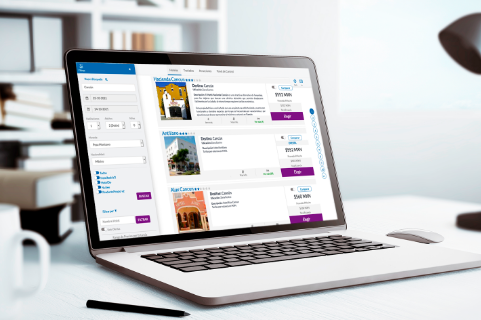In today’s rapidly evolving healthcare landscape, obtaining a Master’s in Healthcare Administration (MHA) can significantly enhance your career prospects and leadership potential. Online MHA programs offer a flexible and accessible path for aspiring healthcare leaders to gain critical skills and knowledge without disrupting their professional lives. This essential guide explores the top online MHA programs available, providing insights into accreditation, curriculum, admission requirements, and program flexibility. We’ll also examine the costs involved, financial aid options, and the career opportunities that an MHA can unlock. Additionally, we’ll highlight the student support services and resources that can help you succeed throughout your academic journey. Whether you’re looking to advance in your current role or pivot into healthcare administration, this guide will help you make an informed decision.
Join gamesweed.com for a detailed examination of this topic.
1. Overview of Online MHA Programs
Online Master’s in Healthcare Administration (MHA) programs are designed for professionals seeking to advance their careers in the dynamic field of healthcare management. These programs offer a comprehensive curriculum that equips students with the skills necessary to navigate complex healthcare environments, including strategic planning, financial management, and healthcare policy. By providing flexible learning options, online MHA programs cater to working individuals who need to balance their studies with professional responsibilities.
Students benefit from a virtual classroom setting that allows them to engage with faculty and peers from across the globe. The programs typically cover essential topics such as healthcare ethics, quality improvement, and leadership, preparing graduates for various roles in hospitals, clinics, and healthcare organizations. Online MHA programs are often structured to accommodate different schedules, making them an attractive option for those seeking to enhance their expertise and leadership capabilities in healthcare administration while maintaining their current employment.

2. Accreditation and Recognition
Accreditation is a critical factor when evaluating online MHA programs, as it ensures the quality and credibility of the education you receive. Accredited programs meet rigorous academic standards set by recognized accrediting bodies, which validates their legitimacy and the value of their degrees in the job market. For MHA programs, look for accreditation from reputable organizations such as the Commission on Accreditation of Healthcare Management Education (CAHME) or regional accrediting agencies.
In addition to formal accreditation, the recognition of the program by professional associations and healthcare organizations can enhance its credibility. Programs that are well-regarded within the industry often have strong connections with healthcare providers and offer networking opportunities for students. These affiliations can provide valuable insights into current industry practices and trends, further enriching the educational experience.
When choosing an online MHA program, verify its accreditation status and consider its reputation within the healthcare community. This ensures that you are investing in a program that will provide you with a solid foundation in healthcare management and improve your prospects for career advancement.

3. Curriculum and Specializations
The curriculum of online MHA programs is designed to provide a comprehensive understanding of healthcare administration, combining core courses with specialized electives to tailor the education to individual career goals. Core courses typically cover essential topics such as healthcare finance, organizational behavior, strategic management, and healthcare law and ethics. These foundational subjects equip students with the necessary skills to manage healthcare organizations effectively and make informed decisions.
In addition to core courses, many programs offer specializations or concentrations that allow students to focus on specific areas of interest within healthcare management. Specializations might include healthcare policy, informatics, public health, or long-term care management. These tailored tracks enable students to gain in-depth knowledge and skills pertinent to their chosen field, enhancing their expertise and making them more competitive in the job market.
The curriculum often incorporates practical experiences such as internships, capstone projects, or case studies, providing students with real-world applications of their studies. This blend of theoretical knowledge and practical experience ensures that graduates are well-prepared to tackle the challenges of healthcare administration and lead effectively in various healthcare settings.

4. Admission Requirements and Application Process
Admission to online MHA programs typically requires a bachelor’s degree from an accredited institution, preferably in a related field such as healthcare, business, or public administration. Most programs also expect candidates to have a strong academic record, with minimum GPA requirements varying by institution.
The application process generally includes submitting transcripts, a resume or CV, and letters of recommendation. Many programs also require a statement of purpose or personal essay outlining the applicant’s career goals and motivation for pursuing an MHA. Some programs may request GRE scores, although many have waived this requirement or offer test-optional admissions.
Additionally, prospective students may need to demonstrate relevant work experience in healthcare or management roles, which can strengthen their application. It is essential to review each program’s specific requirements and deadlines to ensure a complete and timely submission of application materials.

5. Program Duration and Flexibility
Online MHA programs vary in duration, typically ranging from 18 months to 3 years, depending on the program’s structure and the student’s enrollment status. Full-time students often complete their degree in about two years, while part-time students may take longer, allowing them to balance their studies with professional and personal commitments.
One of the main advantages of online MHA programs is their flexibility. Courses are often designed to be asynchronous, meaning that students can access lectures, assignments, and discussions at their convenience, rather than adhering to a fixed class schedule. This flexibility is particularly beneficial for working professionals who need to manage their studies around their job responsibilities and other obligations.
Additionally, many programs offer options such as accelerated courses, part-time enrollment, and customizable schedules to accommodate various needs. This adaptability allows students to progress through the program at a pace that suits their individual circumstances, making it easier to achieve their educational and career goals while maintaining a balanced lifestyle.

6. Cost and Financial Aid Options
The cost of online MHA programs can vary widely depending on the institution, program length, and residency status. On average, students can expect to pay between $20,000 and $60,000 for the entire program. Tuition rates are often charged per credit hour, with additional fees for technology, materials, and other administrative costs.
Financial aid options are available to help manage the expenses of an online MHA program. Many institutions offer scholarships, grants, and assistantships specifically for graduate students. Federal financial aid, including student loans, is also accessible through the Free Application for Federal Student Aid (FAFSA). Additionally, some employers offer tuition reimbursement or assistance programs for employees pursuing advanced degrees.
Prospective students should research each program’s financial aid offerings and application deadlines. Exploring all available financial aid options can help offset the costs and make pursuing an online MHA more affordable.

7. Career Opportunities and Outcomes
Graduates of online MHA programs are well-prepared for a range of leadership roles within the healthcare sector. Career opportunities include positions such as healthcare administrators, hospital managers, and health services directors. These roles involve overseeing the operations of healthcare facilities, managing budgets, and implementing policies to improve patient care and organizational efficiency.
The demand for skilled healthcare administrators is growing as the healthcare industry continues to expand and evolve. Graduates often find opportunities in hospitals, clinics, long-term care facilities, and public health organizations. They may also work in consulting roles or for healthcare-related government agencies.
Program outcomes for MHA graduates typically include enhanced career advancement opportunities, increased earning potential, and the ability to influence healthcare practices and policies. Many graduates report significant career growth and leadership positions within a few years of completing their degree, reflecting the value of the education and training provided by online MHA programs.

8. Student Support Services and Resources
Online MHA programs often provide a range of student support services and resources to enhance the learning experience and ensure academic success. These services include virtual academic advising, which helps students navigate their course selections and academic progress. Many programs offer dedicated support through online platforms where students can access resources such as tutoring, writing assistance, and research help.
Additionally, online MHA programs typically feature career services that assist with job placement, resume building, and interview preparation. Networking opportunities, such as virtual career fairs and alumni events, connect students with industry professionals and potential employers.
Technical support is also crucial, with IT services available to help students with any issues related to online learning platforms and digital tools. Programs often provide access to online libraries and databases, offering a wealth of academic resources for research and coursework.
Overall, these support services and resources are designed to create a comprehensive and supportive learning environment, helping students succeed in their studies and achieve their professional goals.

Online MHA programs offer a flexible and comprehensive path to advancing your career in healthcare administration. With varied curricula, specialized options, and robust support services, these programs are designed to meet the needs of busy professionals. By choosing a well-accredited program, you can gain valuable skills and open doors to numerous career opportunities.
gamesweed.com